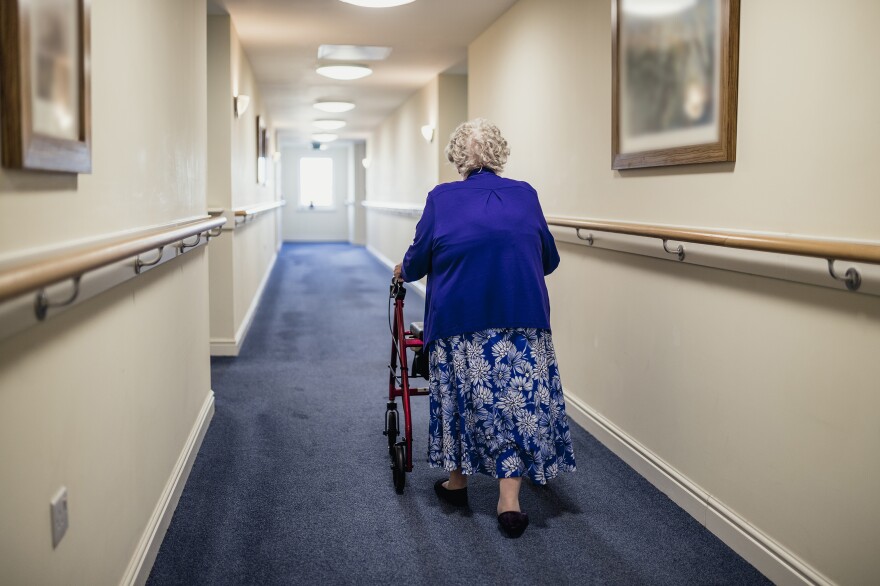While state health officials have reported new COVID-19 clusters at long-term care facilities, advocates for older adults are concerned about possible age discrimination should medical care become rationed.
As of Sept. 10, five long-term care facilities are reporting COVID clusters: Hilo Medical Center's Extended Care Facility on Hawaiʻi Island; and on Oʻahu: Kalakaua Gardens, The Plaza at Pearl City, Aloha Nursing and Rehab, and The Care Center of Honolulu.
The Hawaiʻi Department of Health has not yet released the exact numbers on its dashboard.
"One of the challenges that AARP has been actively trying to get addressed is the issue of transparency. And from our perspective, we're able to get data, but we've got to wait four weeks or so to get it through the federal government's website to find out how many cases in Hawaiʻi's nursing homes were either through staff or residents," said Kealiʻi Lopez, executive director for Hawaii AARP.
"Even though we know that there's five facilities that had recent cases, there's no way to know how many people that is in each facility — whether they were staff or residents," she said.
Lopez said she appreciates the state preparing for the worst-case COVID-19 scenario by updating the crisis standards of care framework, but said she still had some concerns.
If a surge in cases led to prioritizing who receives care, Lopez said age should not be a factor.
"The August 2020 version had the age of 65 as a tiebreaker for certain resources. So what that means is, if all things are equal, someone who is older than 65 has a lower priority than someone who is younger than 65 to get those resources," Lopez said.
"The truth of the matter is there's lots of different biases that folks can have. We're all human. And we believe age should not be one of those," Lopez told Hawaiʻi Public Radio. "The federal government in some of its guidance most recently — so we're hoping the Department of Health is looking at that — has come out and said age should not be a factor."
Those concerns are being echoed by another advocate for older adults, Larry Geller. He is with the Kokua Council but said the group had not yet had a chance to read the standards of care document and had not yet taken a position.
But Geller echoed fears about age discrimination if care is rationed according to the guidelines.
"They're just kicking out older people because they're older, even if they're going to survive and benefit," Geller said.
When asked about the concerns raised by the advocacy groups, a spokesperson for the Department of Health pointed The Conversation to its updated standards of care framework which only considers age as a factor in a "tie-breaker" situation, not as a primary criterion.
Read the updated "Hawaiʻi Crisis Standards of Care: Triage Allocation Framework" in the box below or click here.
This interview aired on The Conversation on Sept. 15, 2021.







